The Alabaster Compendium
Act I: The Meticulous Pursuit
Caspian Ballant adjusted his cufflinks (sterling silver, each engraved with a geometric sigil invisible to the untrained eye) and studied his reflection in the full-length mirror. The morning light filtering through his study's leaded windows caught the sharp angles of his face, the precisely trimmed beard, the obsidian eyes that held no warmth. Perfect. As it should be.
He turned from the mirror, dismissing his own image with the same cold efficiency he applied to everything in his life. The act of dressing had taken forty-three minutes, the same duration as every morning for the past seven years. Grey waistcoat, charcoal trousers, white shirt pressed to mathematical precision. His wardrobe was a uniform of absolutes: no pattern, no excess, no weakness.
The breakfast tray waited on his desk: boiled eggs (exactly six minutes), black coffee (precisely 91 degrees), and toast cut into uniform triangles. He ate without pleasure, fuelling the mechanism of his body with the same detached attention a scholar might give to maintaining a valuable instrument. Around him, his study hummed with silent knowledge: floor-to-ceiling bookshelves crammed with leather-bound volumes, astronomical charts pinned to cork boards, jars of arcane materials lined in alphabetical order on mahogany shelves.
And there, in the centre of his desk, lay The Alabaster Compendium.
The book was older than the city itself, its pages yellowed to the colour of aged bone, its cover bound in something Caspian preferred not to examine too closely in daylight. He had acquired it three years ago from an estate sale in the countryside, tucked away in a crate of mundane occult texts. The dealer hadn't known what he possessed—the fool.
Caspian set down his coffee cup and opened the Compendium with reverent fingers. He'd spent twenty-six months translating its contents, cross-referencing obscure dead languages, testing minor workings in the privacy of his cellar. Each spell had functioned exactly as described. Reality, he'd discovered, was not immutable. It was merely resistant, and resistance could be overcome with sufficient knowledge and will.
He turned to the final pages, the culmination of everything the Compendium offered. The Transcendence of Self. A ritual that would elevate the practitioner beyond the constraints of mortality, beyond the tedious limitations of flesh and time. The text promised power that would make gods envious.
But there was a requirement—a final, essential component.
"The working demands perfection," the ancient script read, "for only through the consumption of that which is flawless may the practitioner ascend beyond flaw. The living essence of one untouched by vice, uncorrupted by weakness, whole in body and radiant in spirit: this is the catalyst that transforms mortal ambition into divine actuality."
Caspian had spent two weeks parsing that passage, consulting etymological texts, and ensuring his translation was exact. The meaning was clear. He needed someone perfect. Not metaphorically perfect, not aspirationally perfect, but genuinely, measurably, objectively superior.
Someone like Frya Devereux.
He'd first noticed her six months ago at a charity gala he'd attended only to maintain his social camouflage. She'd been holding court near the fountain, surrounded by admirers, yet somehow above them all. There was something luminous about Frya: the way she moved with unconscious grace, the way her laughter seemed to illuminate the space around her. She was a painter of some renown, her work displayed in the city's finest galleries. More importantly, she was disciplined: she ran every morning at dawn, ate with careful moderation, and maintained her studio with almost monastic dedication.
She was, in every measurable way, exceptional.
Caspian had made it his business to learn everything about her. He'd purchased one of her paintings (an abstract piece that meant nothing to him but provided an excuse to visit her studio). He'd engineered "chance" encounters at gallery openings, each interaction carefully calculated to seem natural, unremarkable. He'd observed her routines, catalogued her habits, studied her the way an entomologist might study a rare butterfly before pinning it to velvet.
She was perfect.
And perfection, the Compendium insisted, was what he required.
He closed the book and stood, moving to the window. Below, the city sprawled in its usual chaos: carriages clattering over cobblestones, merchants hawking wares, humanity churning through its pointless cycles. They were sheep, all of them. Blind to the deeper patterns, content with their mediocrity.
But Caspian Ballant saw beyond the veil. And soon, very soon, he would step through it entirely.
The knock at his door came at precisely nine o'clock. Caspian checked his pocket watch. Yes, exactly on time. He appreciated punctuality, even when it heralded inconvenience.
"Enter."
His housekeeper, Mrs Albright, stepped inside, her expression carefully neutral. "Begging your pardon, sir, but there's a gentleman here to see you. An Inspector Graves from the Metropolitan Police."
Caspian's hand, reaching for his coffee cup, paused for a fraction of a second. Then he completed the motion smoothly, taking a measured sip. "Did he state his business?"
"No, sir. Only that he had questions regarding a matter of public concern."
"Show him in."
Mrs Albright withdrew, and Caspian used the thirty seconds before the inspector's arrival to scan his study with fresh eyes. Nothing incriminating is visible. The Compendium sat amongst dozens of other occult texts; any investigator would assume it was mere academic curiosity. The ritual materials in the cellar were behind a locked door, and the key was hidden. He was safe.
Still, the timing was unfortunate.
Inspector Percival Graves entered like a grey storm cloud. He was a tall man, lean, with the posture of someone accustomed to carrying burdens. His suit was worn but clean, his hat held in his hands scarred by some old violence. His eyes (pale blue, unnervingly direct) swept the room with the methodical attention of someone trained to notice what didn't belong.
"Mr Ballant." His voice was rough gravel, the accent working-class, educated. "I appreciate you seeing me without an appointment."
"Inspector." Caspian gestured to a chair. "Please, sit. Coffee?"
"No, thank you." Graves sat, but there was no relaxation in his posture. He produced a small notebook from his coat pocket. "I'll be direct, sir. I'm investigating several disappearances in the city over the past eighteen months. I'm speaking with individuals who had contact with the missing persons."
"Disappearances?" Caspian's tone carried mild concern, nothing more. "How troubling. Though I'm unclear how I might be of assistance."
"One of the missing was a Miss Helena Crane. A violinist. You attended one of her concerts at the Riverside Theatre thirteen months ago."
Caspian inclined his head. "I attend many concerts, Inspector. The arts are a passion of mine. But yes, I recall Miss Crane. Her technique was extraordinary. Quite the loss to the musical community, I imagine."
"Indeed." Graves's pen scratched across the page. "And a Mr Thomas Aldrich. A runner. Won several competitions. You were present at the athletics club when he received an award."
"I'm a patron of the club. I attend most of their functions."
"Naturally." Graves looked up, his pale eyes flat and analytical. "There's also a Miss Rebecca Thornhill, a scholar. A Doctor Edwin Marsh, a surgeon. Three others besides. All exceptional individuals in their fields. All disappeared without a trace. And you, Mr Ballant, crossed paths with every single one of them in the months before they vanished."
The study fell silent except for the ticking of the mantel clock. Caspian allowed himself a slight smile, the expression of a man amused by an absurd coincidence. "Inspector, I'm a man of considerable social standing and varied interests. I attend theatre, exhibitions, lectures, and sporting events. It would be extraordinary if I hadn't encountered numerous accomplished people. Surely you don't suspect me of... what, exactly? Abduction?"
"I don't deal in suspicion, sir. I deal in patterns." Graves closed his notebook with a decisive snap. "And the pattern here is clear. Exceptional people, all moving in elevated social circles, all having brief contact with the same individual before disappearing. You."
"Correlation is not causation, Inspector. Any university student could tell you that."
"True enough." Graves stood, settling his hat back on his head. "But patterns interest me all the same. I'll be continuing my investigation, Mr Ballant. I expect we'll speak again."
"My door is always open to assist the Metropolitan Police."
Graves paused at the threshold, his hand on the doorframe. "One more thing, sir. The disappearances all share another peculiarity. In each case, there was... residue. A kind of crystalline substance found at the last known location. Our chemists can't identify it. Burns cold instead of hot when heated. Refracts light in impossible ways." His eyes fixed on Caspian with uncomfortable intensity. "You wouldn't happen to know anything about unusual substances, would you? Given your obvious interest in esoteric texts?"
Caspian's expression remained perfectly composed. "I collect books, Inspector, not chemicals. Though it sounds fascinating. Perhaps your chemists should consult with the Royal Society."
"Perhaps." Graves touched the brim of his hat. "Good day, Mr Ballant."
The door closed. Caspian remained motionless for a full minute, listening to the inspector's footsteps recede down the corridor, then descend the stairs. Only when he heard the front door close did he allow himself to exhale.
The crystalline residue. Of course. He'd been so careful with the major workings, but the minor spells, the exploratory rituals, those he'd performed with less caution. Aetherial salt, the Compendium called it. A byproduct of manipulating reality's fabric. He'd assumed it would dissipate naturally.
A miscalculation. His first, but not necessarily fatal.
He crossed to his desk and opened a locked drawer, withdrawing a leather journal. His own grimoire, filled with meticulous notes on every working he'd performed. He flipped through pages covered in his precise handwriting until he found the entries on Miss Crane, Mr Aldrich, and the others. Practice runs, all of them. Lesser rituals to test the Compendium's theories, to hone his technique.
None of them had been perfect enough for the final working. Miss Crane had been brilliant but erratic. Mr Aldrich had been physically superior but intellectually mediocre. The others had possessed excellence in singular domains but lacked the holistic perfection the ritual demanded.
But Frya Devereux. She was different. She was complete.
Caspian closed the journal and locked it away again. Inspector Graves was intelligent, thorough, and methodical. Dangerous. But he was also constrained by rationality, by the limitations of a mind that could not conceive of what the Compendium made possible. Graves would investigate, would gather evidence, would eventually arrive at conclusions.
But by then, Caspian would be beyond his reach entirely.
He needed to accelerate his timeline. The ritual would happen within the week.
The gallery opening was precisely the sort of tedious affair Caspian normally avoided, but Frya would be there. She was unveiling a new collection, something abstract and meaningless about "the intersection of light and memory." The invitation had arrived three weeks ago, printed on expensive card stock, and Caspian had RSVP'd immediately.
He arrived fashionably late, at quarter past eight, when the crowd would be sufficiently dense to provide camouflage but not so thick as to prevent movement. The gallery occupied a converted warehouse in Southwark, all exposed brick and gaslight sconces. Champagne flowed freely. Guests clustered around canvases that looked to Caspian like expensive accidents.
But there, in the centre of the main room, stood Frya.
She wore midnight blue silk that caught the light as she moved, her auburn hair pinned in an elegant chignon. She was laughing at something a portly gentleman had said, her hand resting lightly on his sleeve, the perfect hostess. Caspian watched her from across the room, cataloguing details. The way she held her wine glass (two-thirds full, barely touched). The angle of her posture (confident, open, but with the micro-tension of someone performing). The frequency of her smiles (genuine when speaking to certain individuals, performative with others).
Perfect. Even her social calculations were flawless.
He waited fifteen minutes, allowing her to cycle through several conversations, before approaching. Timing was crucial. He needed to catch her between groups, when she'd be momentarily vulnerable to a new interaction.
"Miss Devereux." He materialised at her elbow as an elderly couple departed. "Congratulations on the exhibition. Quite breathtaking."
She turned, and her smile activated like gaslight struck. Recognition flickered in her eyes. "Mr Ballant. How lovely to see you again. Have you been admiring the work?"
"I've been admiring the artist." The compliment was calculated, direct enough to flatter but not so bold as to alarm. "Though I confess abstraction challenges me. I prefer clarity, definition. The certainty of line and form."
"How very like you." Her laugh was musical. "You purchased my still life last year. 'Three Pears in Silver Light.' I remember thinking it was one of my more conservative pieces. Not challenging at all."
"Perhaps I've evolved since then. I'd like to commission something new. Something personal." He paused, letting the words settle. "Would you have time this week to discuss it? At your studio, perhaps?"
Her eyes studied him with an artist's attention to detail. For a moment, Caspian wondered if she saw something beneath his careful exterior, some hint of the predator behind the patron's mask. But then she smiled again. "I'm terribly busy this week, actually. But Thursday afternoon? Say, three o'clock?"
"Perfect."
"Wonderful." She touched his arm lightly, a gesture of social warmth. "I should circulate. But I'm glad you came, Mr Ballant. It means a great deal to have serious collectors take an interest."
She drifted away into the crowd, and Caspian remained still, his face composed in pleasant neutrality whilst his mind raced with calculation. Thursday. Three o'clock. Her studio was in Clerkenwell, a converted coach house she owned outright. Isolated. Private. No neighbours close enough to hear anything untoward.
It would be perfect.
He stayed at the gallery another hour, maintaining appearances, before slipping out into the night. The streets of Southwark were dark and narrow, lit by irregular pools of gaslight. Caspian walked with purpose, his mind already moving through the preparations required for Thursday's work.
The ritual circle would need to be inscribed in her studio. He'd need to arrive early, perhaps with some pretext about examining the light. The Compendium specified exact measurements: nine feet in diameter, with seven nodes positioned according to the geometry of celestial harmonics. He'd need chalk infused with bone ash and mercury, the mixture prepared under specific lunar conditions. Fortunately, the moon would be in the correct phase on Thursday evening.
The acquisition itself would require precision. Frya was athletic, capable. A simple physical confrontation risked damage to her perfect form, which would invalidate the ritual entirely. No, he would need to use a lesser working, something from the Compendium's earlier chapters. The Suspension of Volition, perhaps. A complex binding that would render her conscious but compliant, aware but unable to resist.
The thought sent a thrill through him that was almost sensual. Not pleasure, precisely, but the anticipation of completion. Of perfection achieving its purpose.
He arrived home near midnight. Mrs Albright had left a cold supper in his study, which he ignored. Food could wait. He had calculations to finalise, materials to prepare, and variables to account for.
Caspian descended the narrow stairs to his cellar. The space was large, stone-walled, and immaculately organised. Glass cabinets lined one wall, containing jars of preserved specimens and mineral compounds. A workbench dominated the centre, its surface scarred by acid and flame. In the far corner, behind a heavy oak door reinforced with iron bands, lay his ritual chamber.
He unlocked the door with a key worn on a chain beneath his shirt. Inside, the air tasted of old incense and something sharper, more alien. The chamber was circular, perhaps twelve feet across, with a vaulted ceiling marked by sigils in silver paint. The floor was bare stone, meticulously cleaned. No furniture, no decoration. Nothing to interfere with the workings.
This was where he'd performed the practice rituals. Where Miss Crane had stood (briefly) before the spell consumed her. Where Mr Aldrich had struggled (uselessly) against bindings stronger than steel. Where the others had served their purposes and then ceased to exist in any meaningful way.
But none of those workings had been the final ritual. None had required the completion he'd achieve with Frya.
Caspian crossed to a cabinet built into the wall and withdrew a leather case. Inside, wrapped in black silk, lay the implements: an athame of meteoritic iron, a chalice of worked silver, vials containing liquids that seemed to shift colour in the lamplight. He'd spent months acquiring these items, longer still consecrating them according to the Compendium's exacting requirements.
Everything was ready. He simply needed Thursday to arrive.
But Thursday morning brought an unwelcome visitor.
Caspian was in his study, reviewing the ritual's verbal components for the seventy-third time (memorisation was essential; any reading during the working would break concentration), when Mrs Albright announced Inspector Graves.
Again.
Caspian set down the Compendium with deliberate calm, covering it with a newspaper, before calling for the inspector to enter.
Graves looked haggard. Dark circles shadowed his eyes, and his suit appeared slept in. But those pale eyes were sharp as ever, missing nothing.
"Mr Ballant. I apologise for the early intrusion."
"Not at all, Inspector. Though I must admit surprise. I'd assumed our previous conversation concluded your inquiries regarding me."
"Inquiries have a way of expanding." Graves remained standing, his hat in his hands. "I've been examining the timelines more carefully. The residue I mentioned? It appears at each disappearance site exactly three days after the victim was last seen. Like clockwork. Three days."
Caspian said nothing, waiting.
"I've also been consulting with certain academics. Chemists, primarily, but also some fellows from the Society for Psychical Research. They had interesting theories about the substance. One professor suggested it resembled descriptions from medieval alchemical texts. Specifically, from grimoires dealing with what they called 'the manipulation of essential forms.'"
"Fascinating." Caspian kept his tone neutral, mildly interested. "Though I fail to see the relevance to me."
"You're a collector of occult texts." Graves gestured at the bookshelves. "Quite an extensive collection, from what I can see. I wonder if any of these volumes discuss such manipulations?"
"Inspector, half the occult texts ever written discuss such things. Alchemy, transmutation, the philosopher's stone. It's mostly medieval superstition and wishful thinking. Surely the Metropolitan Police don't credit such nonsense?"
"I don't credit anything, Mr Ballant. I follow evidence." Graves moved closer to the desk, his eyes scanning the visible book spines. "I had a constable check with several antiquarian book dealers. You've purchased extensively over the past three years. Very specific purchases. Books on ritual magic, on sacrifice, on the transformation of matter and spirit."
"I'm a scholar of esoteric traditions. It's a hobby."
"An expensive hobby." Graves's gaze settled on Caspian with uncomfortable intensity. "I also checked your financial records. With a magistrate's warrant, naturally. You've spent nearly four thousand pounds on books, materials, and various unusual items. Including a rather large quantity of quicksilver from a chemical supplier in Cardiff."
The temperature in the room seemed to drop. Caspian felt his pulse accelerate, though his expression remained unchanged. "Mercury has many uses, Inspector. Including the preservation of certain rare manuscripts."
"Indeed." Graves produced his notebook again, flipping through pages. "I've also been speaking with gallery owners, theatre managers, and athletic clubs. Building a comprehensive picture of your social movements. You're quite active in certain circles, Mr Ballant. Always attending events where exceptional people gather. Always observing. Several witnesses described you as 'intense' in your attention to particular individuals."
"I appreciate excellence. Hardly a crime."
"No. But I find it curious that you've expressed particular interest in Miss Frya Devereux recently. Purchased one of her paintings. Attended three gallery openings where her work was featured. And I understand you were at her exhibition just this past Saturday."
Caspian's hands rested flat on his desk, perfectly still. "Miss Devereux is a talented artist. I'm considering commissioning a piece."
"Are you?" Graves closed his notebook. "When were you planning to meet with her about this commission?"
"I haven't finalised plans."
"I see." Graves moved towards the door, then paused. "Here's what troubles me, Mr Ballant. I'm a rational man. I believe in evidence, in logic, in the material world. I don't believe in magic or rituals or any of that medieval rubbish."
"Quite sensible of you."
"But I do believe in patterns. And the pattern here points to you. Clearly. Undeniably. Seven people have disappeared after crossing your path. Seven exceptional people. And in each case, three days after they vanished, this impossible substance appears at locations you'd visited." He turned, his face grave. "I don't know how you're doing it, Mr Ballant. I don't understand the mechanism. But I know you're responsible."
"A fascinating theory, Inspector. But theories require proof."
"I'll find it." Graves settled his hat on his head. "I'm assigning men to watch your residence. For your own protection, of course. And I'll be speaking with Miss Devereux, warning her to exercise caution in your company. Purely as a precaution."
Caspian stood, his movements controlled and deliberate. "Inspector, I've been patient with these accusations. But you're edging towards harassment. I have connections, legal resources. Unless you have actual evidence of wrongdoing, I suggest you direct your energies elsewhere."
"Evidence is precisely what I'm gathering." Graves opened the door. "Good day, Mr Ballant. I suspect we'll speak again very soon."
The door closed. Caspian listened to the inspector's footsteps fade, then moved to the window. Below, he could see Graves emerging onto the street, speaking to a constable positioned on the corner. The constable nodded, his eyes fixed on Caspian's front door.
Watchers. The inspector had placed watchers on his home.
Caspian's mind raced through calculations. Thursday's appointment was now compromised. If he left for Frya's studio, he'd be followed. If he attempted the ritual with police surveillance, he'd be interrupted at a critical moment. And if Graves spoke to Frya, warned her, she might refuse to see him at all.
The timeline he'd carefully constructed was collapsing.
He turned from the window, his gaze falling on the Compendium. The book seemed to pulse with malevolent vitality, its yellowed pages promising transformation and demanding sacrifice.
Caspian had two choices: abandon the ritual, destroy his preparations, and resign himself to mundane mortality whilst Inspector Graves slowly built his case. Or accelerate everything. Complete the work tonight, before Graves can interfere further.
But the ritual required Frya. And Frya was now beyond his easy reach.
Unless.
Caspian crossed to his desk and withdrew a sheet of writing paper. His pen moved across the page in elegant script:
Dear Miss Devereux,
I fear I must cancel our Thursday appointment due to an unexpected personal matter. However, I wonder if you might be available this evening instead? I realise the imposition is considerable, but I'm leaving the city tomorrow for an extended period, and I'm quite eager to discuss the commission before I depart.
If you're amenable, might I call at your studio at seven o'clock? I promise not to occupy too much of your evening.
With sincere regards, Caspian Ballant
He sealed the letter and rang for Mrs Albright. When she appeared, he handed her the envelope along with a half-crown. "Have this delivered to Miss Devereux's studio immediately. Wait for a reply."
"Yes, sir."
Mrs Albright departed. Caspian moved to his bookshelves, withdrawing volumes on rapid ritual construction. If Frya agreed to meet tonight, he'd have less than twelve hours to prepare. The work would need to be performed at her studio, not his ritual chamber. That meant transporting materials through streets watched by police.
Difficult. But not impossible.
He descended to the cellar and began gathering what he'd need. The athame, small enough to conceal in a coat pocket. Vials of prepared compounds, easily hidden. The chalice would be too conspicuous, but he could use one of Frya's own vessels if necessary. The Compendium itself, essential for reference while the working.
The most challenging component would be the ritual circle. He couldn't transport pre-mixed chalk; the ingredients were too volatile. He'd need to prepare it on-site, which added time and complexity.
But it could be done.
Mrs Albright returned within the hour, slightly breathless from hurrying. "The lady sends her reply, sir."
Caspian unfolded the note. Frya's handwriting was artistic, flowing:
Mr Ballant,
This evening would be perfectly suitable. Seven o'clock at my studio. I look forward to hearing your commission ideas.
Frya Devereux
Perfect.
Caspian spent the remainder of the day in meticulous preparation. He packed a leather satchel with the implements, arranged discreetly to appear like an artist's supplies, should anyone inspect it. He reviewed the ritual sequences until he could recite them backwards. He calculated the celestial alignments and confirmed they were marginally acceptable for tonight's work.
At half past five, as dusk gathered over the city, he dressed in dark clothes suitable for evening travel. At six o'clock, he descended to the kitchen where Mrs Albright was preparing dinner.
"I'll be dining out this evening," he informed her. "Don't wait up."
"Very good, sir."
He exited through the servants' entrance at the rear of his townhouse, emerging into a narrow mews that ran behind the terrace. As expected, the police watchers were positioned at the front. Graves had been thorough but not thorough enough. He hadn't considered secondary exits.
Caspian walked quickly through the mews, turned onto a side street, and hailed a cab on the main thoroughfare. "Clerkenwell," he told the driver. "St John Street."
The journey took twenty minutes through evening traffic. Caspian sat in the cab's dim interior, his satchel resting on his lap, his mind reviewing every step of what would come. The Suspension of Volition to secure Frya's compliance. The inscribing of the circle whilst she stood frozen. The careful positioning of her form at the centre point. The invocation of the Compendium's most potent working.
And then, transcendence.
The cab deposited him two streets away from Frya's studio. Caspian walked the remaining distance, his breath misting in the cold autumn air. Her studio occupied a former coach house, three stories of brick with tall windows that glowed with interior light. The surrounding buildings were commercial premises, empty at this hour. Private. Isolated.
Perfect.
He mounted the steps and knocked. Footsteps approached from within, and the door opened.
Frya stood framed in warm lamplight, still wearing her day clothes: a simple grey dress, her hair pinned loosely. She smiled. "Mr Ballant. Punctual to the minute. Please, come in."
Caspian stepped across the threshold, and the door closed behind him.
Act II: The Convergence
Frya's studio was precisely as Caspian had imagined it: spacious, well-lit, organised with the same meticulous attention he himself practised. Canvases lined the walls in various states of completion. A painter's easel stood near the windows, positioned to catch the best natural light during the day. The scent of linseed oil and turpentine hung in the air, chemical and sharp.
"I apologise for the short notice," Caspian said, setting his satchel carefully beside a worktable. "I hope it wasn't too great an imposition."
"Not at all. I often work evenings anyway." Frya gestured to a pair of chairs positioned near a small coal stove that provided heat. "Please, sit. Would you like tea?"
"Thank you, no. I'm eager to discuss the commission."
She settled into the opposite chair, her posture relaxed but attentive. In the lamplight, her features seemed even more perfect than he'd remembered: the symmetry of her face, the clarity of her eyes, the unconscious grace of her movements. She was, quite objectively, flawless.
And she had mere minutes remaining to enjoy that perfection.
"What did you have in mind?" she asked. "You mentioned wanting something personal."
Caspian leaned forward slightly, his hands resting on his knees. "I want a portrait."
"Oh?" Genuine surprise flickered across her face. "That's rather outside my usual work. I primarily do abstracts and still life."
"Nevertheless, I'd like you to paint me. Or rather..." He paused, choosing words carefully. "I'd like you to paint what I'm about to become."
Her smile faltered, confusion replacing it. "I'm not sure I understand."
"You will." Caspian stood smoothly and crossed to his satchel. From within, he withdrew the Compendium, its ancient binding seeming to absorb the lamplight rather than reflect it. "Tell me, Miss Devereux, do you believe in magic?"
"I... I'm sorry?" She rose from her chair, uncertainty creeping into her expression. "Mr Ballant, what is that book?"
"The key to transformation. To transcendence." He opened the Compendium to a marked page, his finger tracing the ancient script. "You are an artist. You understand the pursuit of perfection. You spend your life attempting to capture beauty, truth, the essential nature of things."
"Mr Ballant, I think perhaps you should leave." Her voice had taken on a brittle quality. She moved towards a side table where, Caspian noted, a letter opener lay within reach.
"I'm like you," he continued, his voice calm, academic. "I pursue perfection. But not on canvas. In reality itself. The Alabaster Compendium teaches that reality is malleable, Miss Devereux. With sufficient knowledge, sufficient will, one can reshape the very fabric of existence."
"You're mad." She grabbed the letter opener, holding it between them like a talisman. "Get out. Get out now, or I'll scream."
"Scream if you like. The nearest occupied building is a hundred yards distant. No one will hear." Caspian set the Compendium on the worktable, then withdrew a small vial from his pocket. The liquid inside shimmered with colours that shouldn't exist. "I've practised extensively, Miss Devereux. Seven times, in fact. Seven lesser workings to perfect my technique. You would have been the eighth. But circumstances have accelerated my timeline."
"Seven..." Her face went pale. "The disappearances. The people who vanished. That was you."
"They were experiments. Imperfect subjects for imperfect rituals. But you..." He uncorked the vial, and the air in the studio suddenly tasted of winter and starlight. "You are perfect. Physically, intellectually, creatively. You are exactly what the final ritual requires."
Frya lunged towards the door, but Caspian was faster. He spoke three words in a language older than English, older than Latin, syllables that hurt the throat to pronounce. The vial's contents transformed into vapour that filled the studio in an instant.
Frya froze mid-step. Not physically restrained, but rendered still by an invisible force that locked her muscles, stopped her breath, imprisoned her in her own body. Her eyes remained mobile, wide with terror, darting between Caspian and the door she'd never reach.
"The Suspension of Volition," Caspian explained, approaching her carefully. "You're conscious. You can see, hear, and think. But your body no longer obeys you. Don't fight it. Fighting only makes it more uncomfortable."
He tested the binding by touching her shoulder. She remained frozen, solid as a statue. Perfect. The work had succeeded.
"Now then." Caspian returned to his satchel and withdrew the remaining implements: the athame, smaller vials containing ground minerals and bone ash, and a measuring cord marked at specific intervals. "The ritual will take approximately ninety minutes to complete. I'll need to inscribe a circle around you, perform certain invocations, and then... well, the final step is best not described in advance."
He began marking the floor with chalk mixed from the vials' contents. The substance adhered to the wooden boards with unnatural permanence, glowing faintly in the lamplight. He worked from Frya's position outwards, inscribing a circle exactly nine feet in diameter. The measurements had to be perfect. Any deviation would cause the working to fail catastrophically.
Around the circle's perimeter, he marked seven nodes: geometric points calculated according to celestial harmonics. At each node, he placed a tiny amount of mercury from another vial, speaking a word of binding. The mercury beads remained stationary, defying gravity and physics, suspended an inch above the floor.
"The Compendium explains it quite elegantly," Caspian said, speaking as much to himself as to his frozen captive. "Reality is not fixed. It's a consensus, a shared hallucination maintained by the collective unconscious of all living minds. But with sufficient knowledge, one can impose one's own will upon reality. Bend it. Break it. Remake it."
He inscribed symbols in the spaces between the nodes: sigils from the Compendium's oldest pages, glyphs that predated written language. His hand moved with practised precision, each mark exact, each curve precisely calculated.
"The seven previous rituals were practised," he continued. "Lesser workings that required lesser subjects. Miss Crane's musical talent. Mr Aldrich's physical prowess. The others' various excellences. Each ritual consumed them, transformed their essential nature into raw magical potential that I could harness."
The circle was nearly complete. Just the final binding runes to inscribe, then he could begin the invocations proper.
"But you, Miss Devereux, are different. The final ritual requires total perfection. Excellence in body, mind, and spirit. I've observed you for months, studying every aspect of your life. Your discipline, your creativity, your health. You are, quite objectively, the most perfect human being I've ever encountered."
He finished the final rune and stood, surveying his work. The circle was complete: nine feet of geometric precision, seven nodes of suspended mercury, ancient symbols glowing with faint phosphorescence. At the centre, frozen and terrified, stood Frya Devereux.
"The ritual will consume you," Caspian said softly, almost gently. "Your perfection will become mine. Your excellence will transform me into something beyond human limitation. You should feel honoured. Your perfection won't be wasted. It will elevate me to heights of power that you, constrained by mortality, could never achieve."
He opened the Compendium to the final ritual. The text swam before his eyes, ancient words in a language that predated civilisation. He'd translated it weeks ago, memorised every syllable, but seeing it now, on the verge of completion, sent an electric thrill through him.
This was it. The culmination of three years' study. The fulfilment of his obsession.
Transcendence.
He began to read.
The invocation started quietly, almost a whisper. Ancient syllables that tasted of copper and ice. The studio's temperature dropped precipitously. Frost formed on the windows in geometric patterns. The canvases on the walls rippled as though the painted surfaces had become liquid.
Caspian's voice grew louder, more confident. The words flowed through him, reshaping the air, bending reality around the circle. The mercury beads at the seven nodes began to spin, slowly at first, then faster, silver spheres orbiting invisible centres.
Frya's eyes widened further. Tears streamed down her frozen cheeks.
The ritual demanded three invocations, each more complex than the last. Caspian completed the first, paused to steady his breathing, then began the second. His voice took on harmonics that shouldn't exist, multiple tones emerging from a single throat. The studio is filled with sound and light and impossible geometries.
The second invocation complete, he moved to the third. This was the crucial one. The words that would complete the working, that would consume Frya's perfection and transform it into his own transcendence.
He raised the athame, pointing it towards Frya's frozen form. The meteoritic iron gleamed with inner fire. He spoke the first word of the final invocation.
The front door exploded inward.
Inspector Graves stood in the doorway, flanked by two constables, his face a mask of fury and determination. "Stop! By order of the Metropolitan Police!"
Caspian's concentration shattered. The invocation broke mid-syllable. The ritual circle flickered but remained active, the mercury beads still spinning, the temperature still glacial.
"You're too late, Inspector!" Caspian shouted over the howl of impossible winds that had sprung up around the circle. "The work is nearly complete. You can't stop it!"
"The hell I can't." Graves drew a revolver from his coat and levelled it at Caspian's chest. "Step away from her. Now."
"You don't understand what you're interfering with!" Caspian's hand trembled around the athame. "I'm on the verge of transcendence! Of becoming something beyond your limited comprehension!"
"What I comprehend," Graves said coldly, "is that you're a murderer. And you're under arrest."
One of the constables moved cautiously towards Frya, trying to approach her frozen form. The moment he crossed the circle's boundary, energy crackled through the air. The constable flew backwards, striking the wall with bone-breaking force.
"The circle is sealed!" Caspian laughed, manic triumph in his voice. "Nothing can cross it until the ritual completes. She's mine, Inspector. Her perfection is mine!"
Graves's eyes scanned the studio with desperate intensity. The ritual circle, the suspended mercury, the impossible frost, the warping of reality itself. His rational mind rejected everything he was seeing, but his eyes couldn't deny it.
Magic was real.
And he was out of his depth.
"How did you find me?" Caspian demanded, his free hand returning to the Compendium. "The watchers were at my front entrance."
"I warned Miss Devereux this afternoon," Graves said, his revolver still trained on Caspian. "Told her you were dangerous. She agreed to send word if you contacted her. Your note arrived, she alerted us, and we followed you from two streets back."
Caspian's face twisted with fury. "Then I have even less time than I thought." He turned back to the circle, back to Frya's frozen form, and raised the athame again. "I'll complete this work, Inspector. And once I have, your bullets won't harm me. Nothing will."
He spoke the next word of the final invocation.
Reality buckled. The walls of the studio became translucent, revealing impossible spaces beyond. The mercury beads spun faster, transforming into silver blurs. Frya's frozen body began to glow with pale light.
Graves made a decision. He couldn't cross the circle. He couldn't shoot Caspian without risking the bullet passing through and hitting Frya. But there was one thing he could do.
He aimed at the Compendium.
And fired.
The bullet struck the ancient book dead centre, tearing through yellowed pages, punching through the leather binding. The Compendium exploded in a burst of light and sound and something else, something fundamental and terrible.
The ritual circle collapsed.
The mercury beads dropped to the floor with musical chimes. The impossible frost evaporated instantly. The warping of reality snapped back with an audible crack that rattled every window.
But the energy the ritual had already generated had nowhere to go. It erupted outward in a wave of pure magical force, slamming into everything in the studio.
Caspian screamed. The athame in his hand turned white-hot, burning through his palm. He dropped it, clutching his ruined hand, his face contorted with agony and rage. But worse than the pain was the knowledge: the ritual had failed. The work was incomplete. His transcendence, his perfection, his apotheosis...
Gone.
The magical backlash struck him like a physical blow. He staggered, fell to his knees. His carefully cultivated perfection began to unravel. The obsessive discipline he'd maintained for seven years shattered in an instant. His body aged years in seconds: skin sagging, hair greying, muscles withering. The magical energies he'd tried to harness turned inward, consuming him instead of elevating him.
Frya collapsed as the Suspension of Volition broke. She gasped, sucking in air, her muscles finally obeying her again. One of the constables rushed to her side, helping her up, leading her away from the ruined circle.
Graves approached Caspian carefully, his revolver still drawn. The man who'd been so immaculate, so precise, so perfect in his obsessions, now looked ancient and broken. His hands trembled. His eyes, once sharp and cold, were clouded with confusion.
"Caspian Ballant," Graves said formally, "you're under arrest for the murders of Helena Crane, Thomas Aldrich, Rebecca Thornhill, Edwin Marsh, and three others besides. And for the attempted murder of Frya Devereux."
Caspian looked up at him, and for a moment, clarity returned to those ruined eyes. "You don't understand," he whispered. "I was so close. So close to perfection."
"You were never close," Graves said quietly. "You were just a man obsessed with something you could never have."
He gestured to the remaining constable. "Take him."
Act III: The Catastrophe and Aftermath
The magistrate's court was packed with spectators. News of the "Perfectionist Murders" had gripped the city for weeks. Seven people vanished, their bodies never found, and now the perpetrator was caught in the act of attempting an eighth.
But what made the case truly extraordinary was the nature of Caspian Ballant's defence.
He'd confessed to everything. The murders, the rituals, the obsession with perfection. But he'd also claimed, repeatedly and insistently, that magic was real. That he'd successfully performed seven transformative workings. That he'd been on the verge of transcendence when Inspector Graves had interfered.
The court-appointed physician had declared him insane. The prosecutor had argued for death by hanging. Caspian's own barrister had pleaded diminished capacity.
But Inspector Graves, sitting in the gallery throughout the trial, knew the truth was more complex.
Magic was real. He'd seen it. The impossible circle, the suspended mercury, the warping of reality itself. The evidence was undeniable, even if every rational part of his mind rebelled against accepting it.
He'd removed the destroyed Compendium from Frya's studio before other officers arrived, hiding it in his coat. He'd said nothing about the magical aspects of the case in his official report. The other constables had been too shocked to mention details clearly. Frya herself, traumatised and uncertain, had described her ordeal vaguely, speaking of being "paralysed with fear" rather than frozen by sorcery.
The official narrative was simpler: Caspian Ballant was a delusional killer who'd murdered seven people in pursuit of an insane philosophy about perfection. The strange residues found at crime scenes were dismissed as chemical compounds from his experiments. The impossible aspects were quietly ignored.
It was easier that way.
The verdict came quickly: guilty on all counts. The sentence: confinement to Bethlem Royal Hospital for the criminally insane, indefinitely.
Graves watched as they led Caspian away. The man who'd once been so meticulously groomed now looked haggard and ancient, muttering to himself about formulas and invocations and transcendence forever beyond reach.
Three weeks after the trial, Inspector Graves visited Frya Devereux at her studio. She'd returned to work tentatively, though she'd moved her workspace to the ground floor, unable to use the main studio where she'd nearly died.
"Inspector." She greeted him with a cautious smile, offering tea, which he accepted. "I didn't expect to see you again."
"I wanted to see how you were recovering." He settled into a chair, the same chair Caspian had sat in that terrible night. "And to ask you something."
"Go ahead."
"That night. What you experienced when Ballant had you... frozen. Do you remember it clearly?"
Frya's hands tightened around her teacup. "Yes. Every second. I was aware of everything but couldn't move, couldn't scream, couldn't resist. It was..." She shuddered. "It was like being buried alive in my own body."
"But you were frozen. Physically immobilised."
"Yes."
"By something that wasn't physical restraints."
She met his eyes, and Graves saw understanding there. "You're asking if it was real. If his magic was real."
"Was it?"
Frya was silent for a long moment. Then: "I'm an artist, Inspector. I'm trained to observe, to see things as they truly are. And what I saw that night..." She set down her teacup with trembling hands. "The circle he drew glowed. The air inside it was different, heavier, wrong somehow. And when your constable tried to cross it and was thrown back... that wasn't tricks or chemicals. That was something else."
"Yes," Graves said quietly. "It was."
"Does that frighten you? Knowing that such things are possible?"
"Terrifies me," Graves admitted. "I've spent my entire career believing in evidence, in logic, in the material world. And now..." He trailed off, shaking his head.
"What will you do?"
"My job. Continue investigating crimes, gathering evidence, following the rules of a rational world." He paused. "But I'll do it knowing that the world is perhaps less rational than I believed. That there are patterns beneath patterns. Mysteries I can't solve with a magnifying glass and deductive reasoning."
"Will you tell anyone? About what really happened?"
Graves shook his head. "Who would believe me? And what purpose would it serve? Ballant is contained. His book is destroyed. The seven people he murdered are still gone. Knowing the truth about how he killed them doesn't bring them back."
"But destroying the book," Frya said carefully, "did that destroy the knowledge it contained?"
The question hung between them, heavy with implication.
"I don't know," Graves admitted. "I burned the remains. Watched it turn to ash. But the things Ballant learned from it... Those can't be unlearned. They're in his mind, even now. And if there was one such book, might there be others?"
"A disturbing thought."
"Yes." Graves stood, preparing to leave. "If you ever notice anything unusual, Miss Devereux, anything that seems... wrong in ways you can't explain, contact me. I have a feeling Ballant won't be the last person who stumbles onto these hidden patterns."
"You think there might be others?"
"I think the world just became much larger and much darker than I'd believed possible." He settled his hat on his head. "And someone needs to watch for the darkness. Might as well be me."
In Bethlem Hospital, in a cell with padded walls and a single barred window, Caspian Ballant sat on his narrow bed and reconstructed the Compendium from memory.
He had no paper, no writing implements. But he didn't need them. The ritual formulas, the invocations, the geometric proofs, all of it was inscribed in his mind with perfect clarity. His body had failed. His transcendence had been stolen. But his knowledge remained.
The doctors called him insane. Let them. Sanity was a prison for small minds.
He closed his eyes and recited the Compendium's opening passage, feeling the words reshape reality in tiny, imperceptible ways. The backlash from the failed ritual had damaged him, true. Aged him, weakened him, stripped away the physical perfection he'd so carefully cultivated.
But the magical energies he'd absorbed during those seven previous workings still pulsed inside him. Diminished but present. Potential waiting to be realised.
He was patient. He'd spent three years preparing the final ritual. He could spend three more recovering from its failure.
And next time, there would be no Inspector Graves to interfere.
Next time, he would be more careful. More subtle. More perfect in his execution.
Caspian opened his eyes and smiled at the padded walls of his cell. The staff thought they'd contained him. They thought the bars and the locks and the watchful orderlies made him powerless.
They didn't understand.
Reality itself was the only prison that mattered. And reality, as the Alabaster Compendium had taught him, was merely a suggestion.
One he fully intended to ignore.
Inspector Percival Graves stood in his office at Scotland Yard, staring at a map of London on his wall. He'd marked each of Ballant's crime scenes with a red pin. Seven pins, arranged in a pattern he didn't fully understand but suspected was significant.
The case was closed officially. Ballant was confined. Justice had been served.
But Graves couldn't shake the feeling that something larger had begun that night in Frya Devereux's studio. That he'd glimpsed something ancient and terrible lurking beneath the city's rational surface.
He'd started collecting reports of other unusual crimes: disappearances with strange residues, impossible thefts, witnesses describing events that defied physical law. Most were easily explained. But some...
Some made him wonder.
He added a new pin to his map: green this time, marking a location in Whitechapel where a man had vanished from a locked room, leaving behind only a pool of liquid silver.
Graves lit his pipe and studied the map, the pins, the patterns emerging from chaos.
He was a rational man living in an increasingly irrational world.
But he'd adapt. He'd learn. He'd watch for the darkness Ballant had revealed.
Because if magic were real, if reality itself could be manipulated by those with sufficient knowledge and will, then London needed someone who understood both worlds: the rational and the impossible.
It might as well be him.
He turned from the map, gathered his hat and coat, and headed out into the fog-shrouded streets. There was work to be done. Patterns to decode. Darkness to confront.
And somewhere in the city's ancient heart, he suspected, another practitioner was even now opening a forbidden text, studying impossible formulas, preparing to reshape reality according to their own obsessed vision.
Inspector Percival Graves would be ready.
He had to be.
Because the alternative, the possibility that such power could be unleashed unchecked, was too terrible to contemplate.
The city moved around him, vast and teeming and utterly mundane on its surface. But beneath that surface, in shadows and whispers and carefully hidden texts, another world existed.
A world of magic and monsters and men who pursued perfection at any cost.
Graves pulled his coat tighter against the autumn chill and walked into the fog.
The hunt continued.
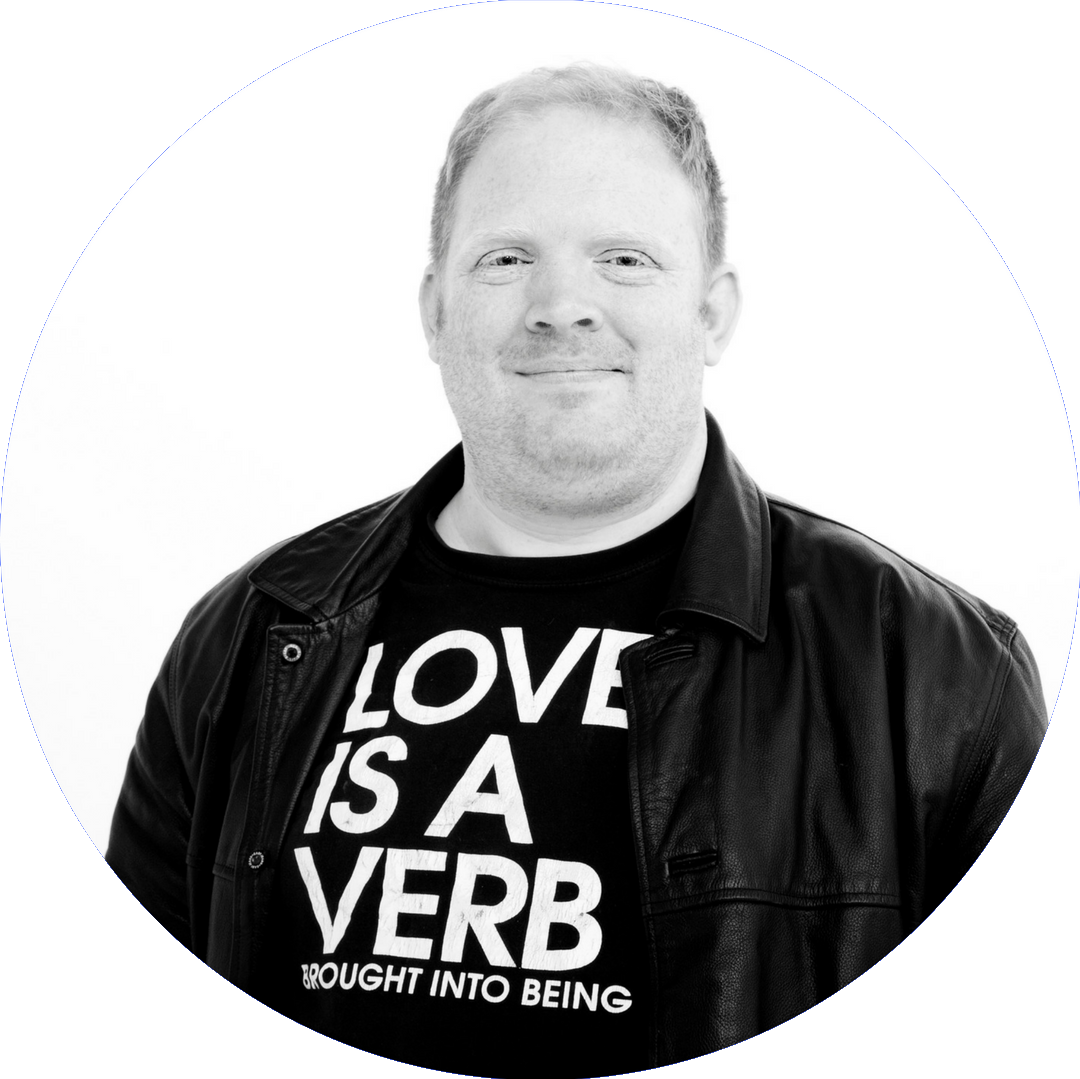

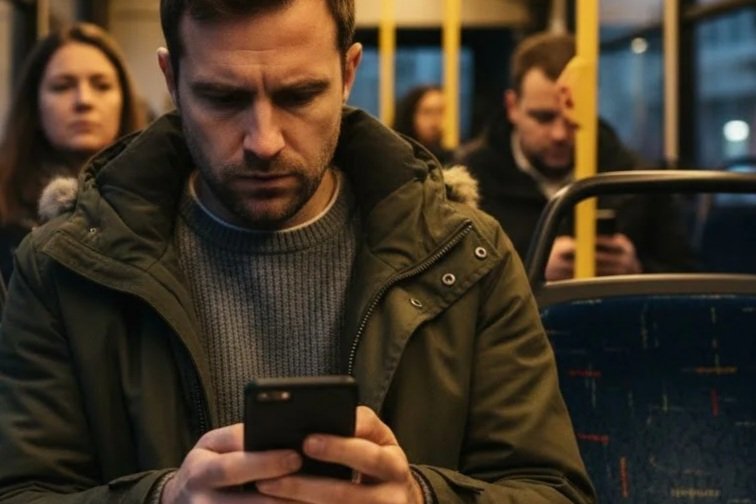
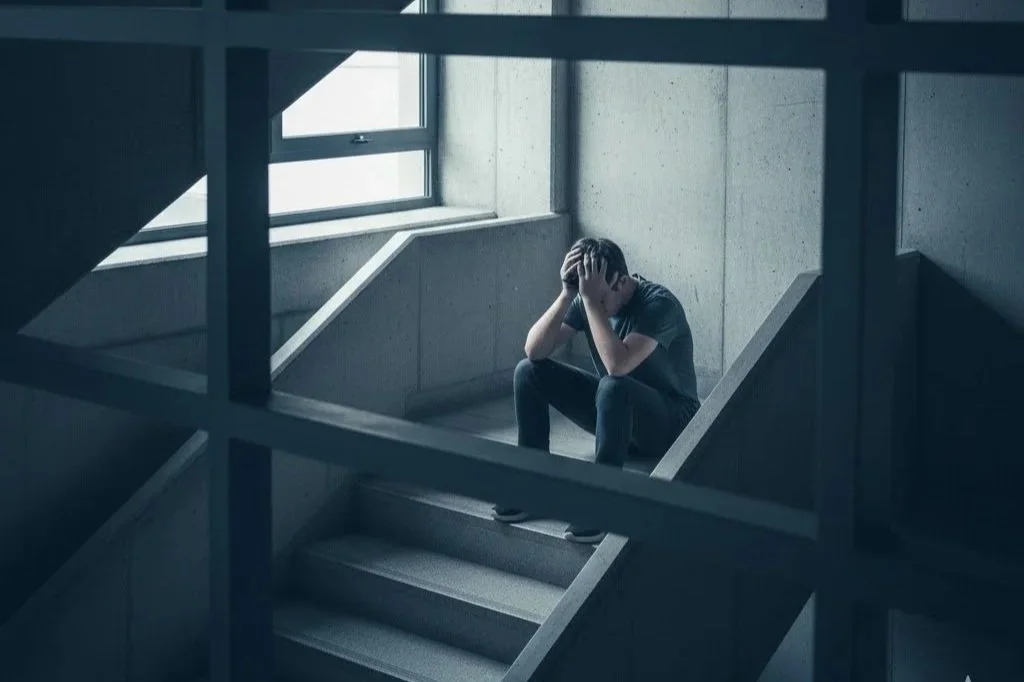
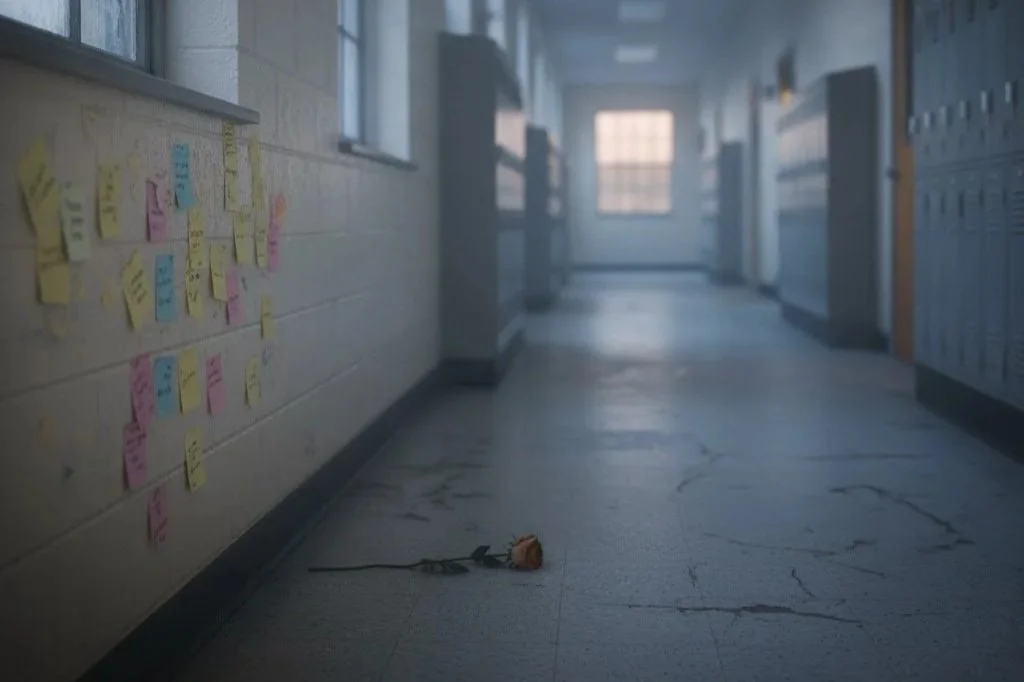

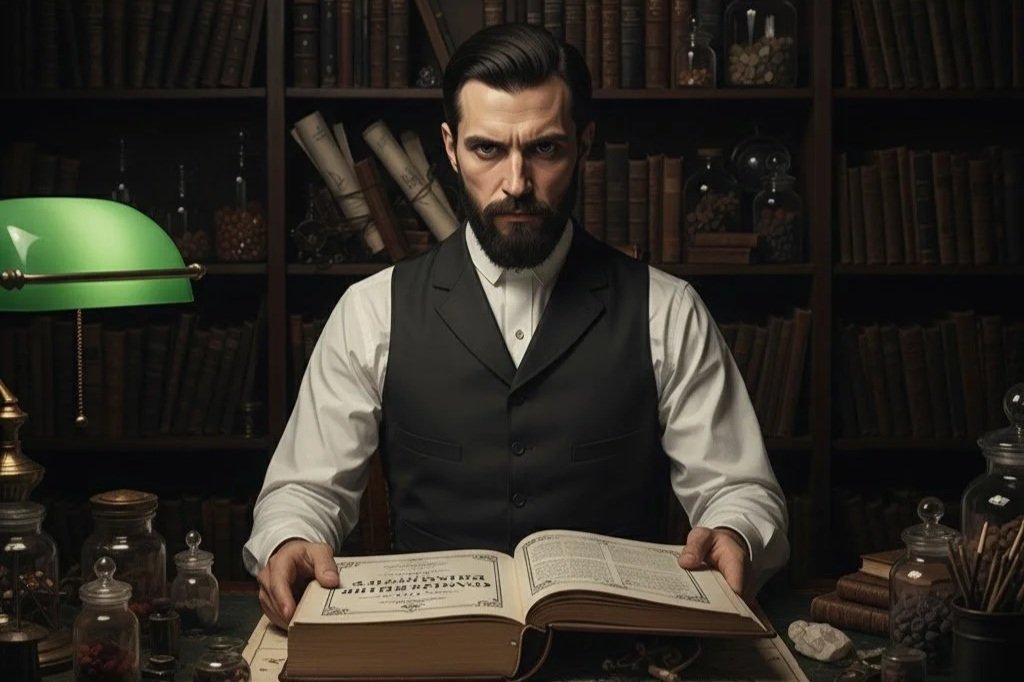



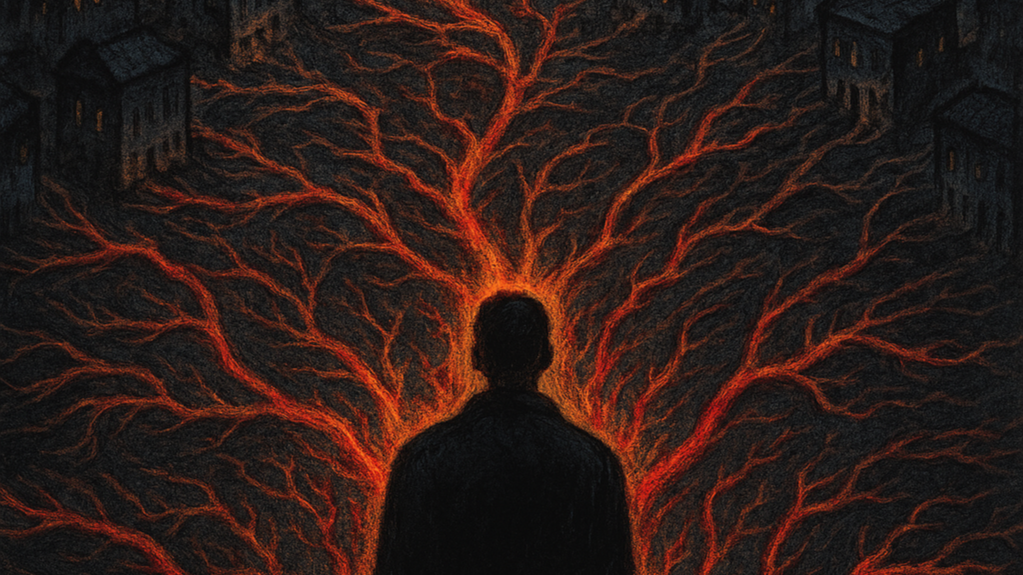





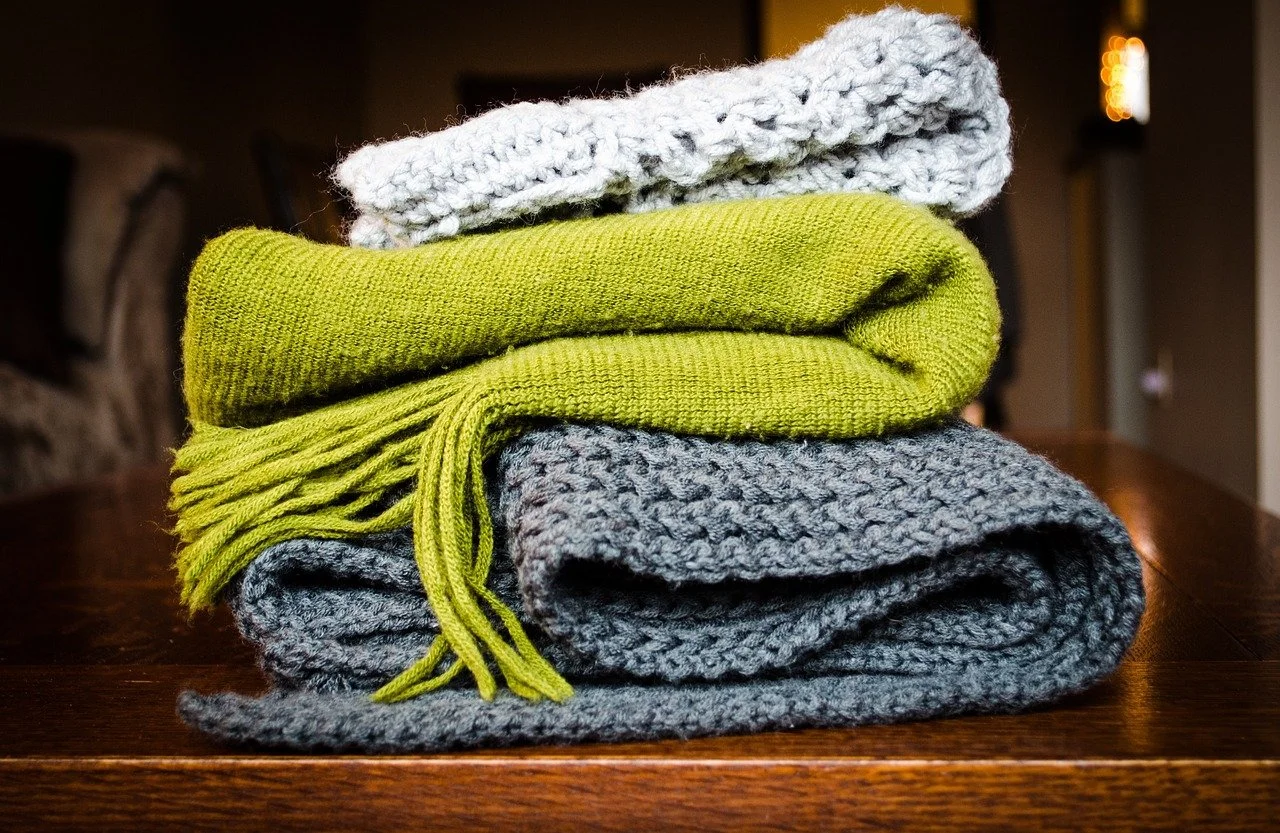
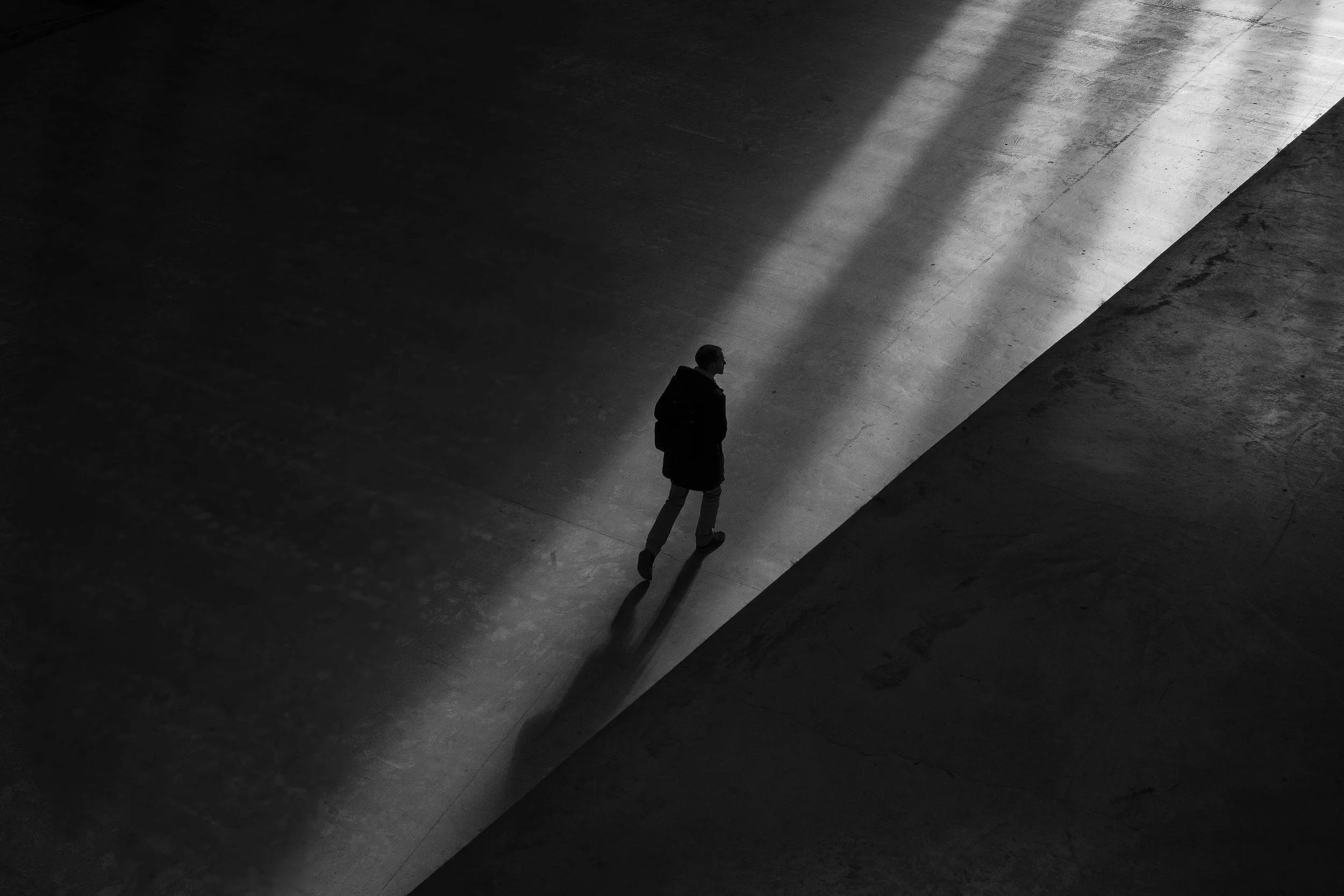



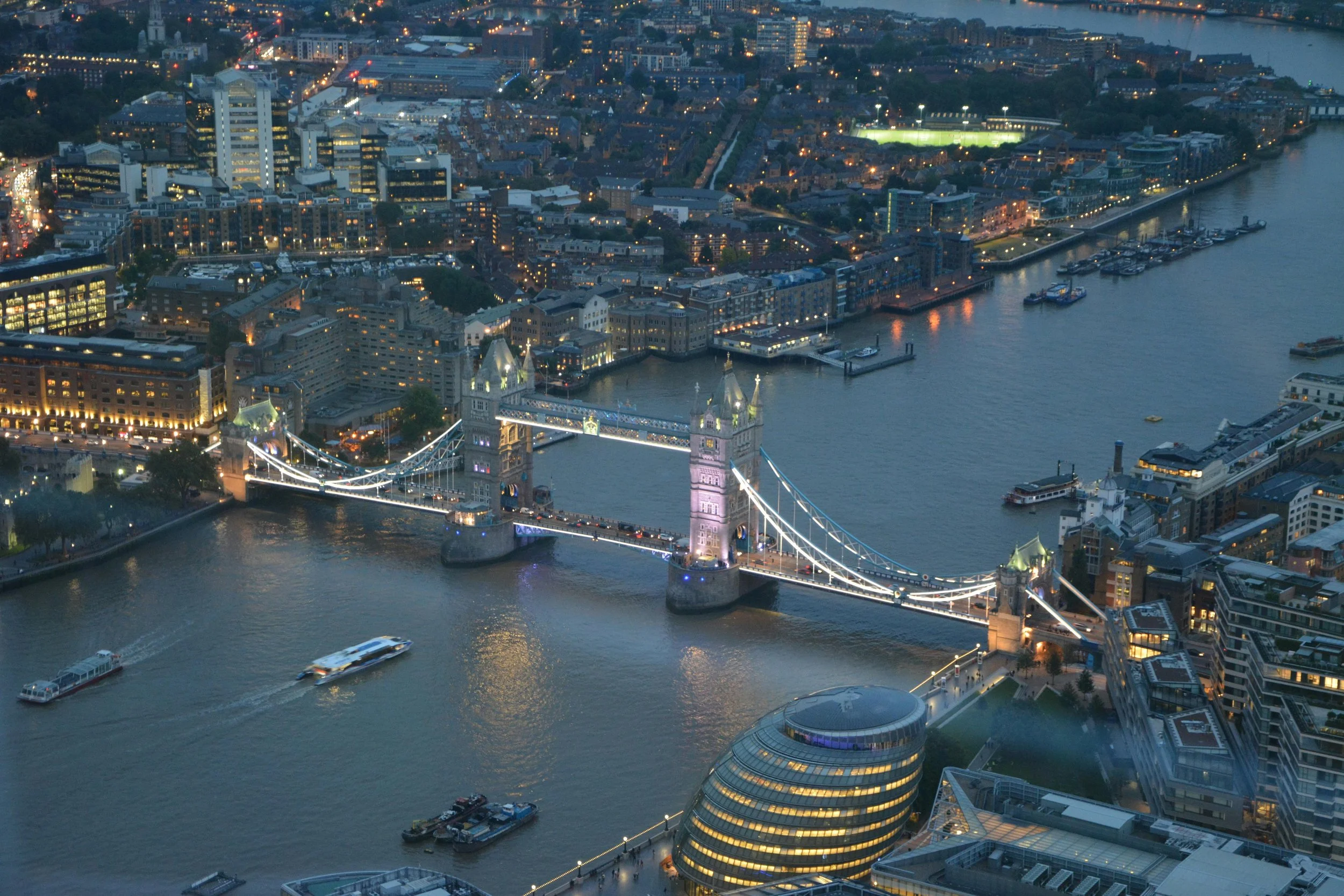







Some people move through the world making noise. Thirteen-year-old Leo has learnt to be still. But when an old illustrated book vanishes from the bookshelf, Leo discovers something extraordinary living in the walls of the Victorian house: the Snibbit, a small magical creature that collects beautiful things and understands that silence can be full of meaning. Through carefully preserved fragments from the past, the Snibbit teaches Leo how to navigate a world that isn't built for quiet people.